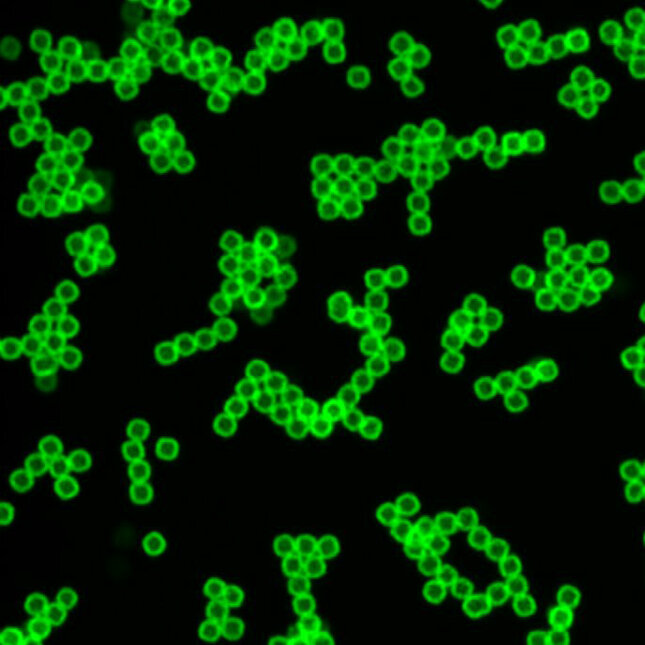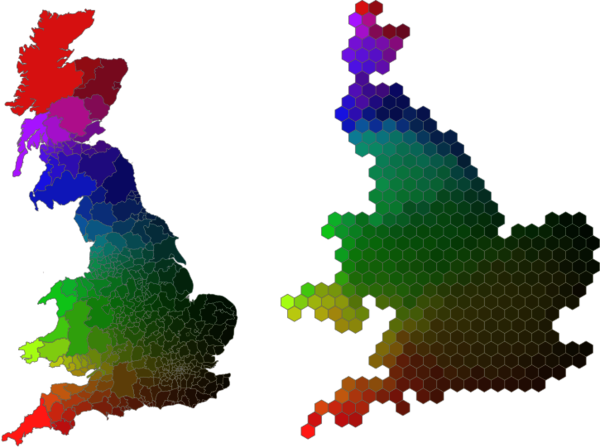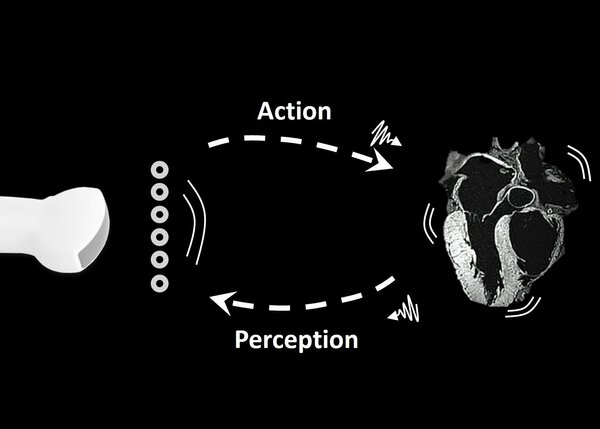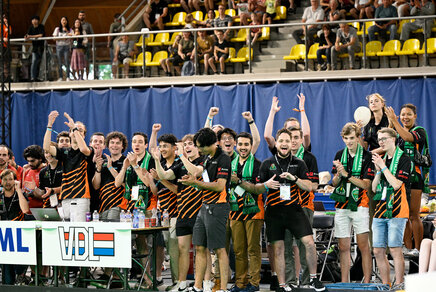Prestigious Vidi-grant for four TU/e researchers
The origins of self-assembly, data visualization, increasing access to affordable medicines, and ultrasound imaging are the topics to receive the NWO funding.
![[Translate to English:] [Translate to English:]](https://assets.w3.tue.nl/w/fileadmin/_processed_/9/a/csm_Vidi%20winners%20banner%20image_3deaa88fa5.jpg)
Four researchers from TU/e have been awarded a Vidi grant from the Dutch Research Council to further develop their innovative research. Janne-Mieke Meijer, Wouter Meulemans, Tugce Martagan, and Ruud van Sloun will each receive a grant worth 800,000 euros with which they can set up or continue their innovative research over the coming five years.

Janne-Mieke Meijer: Unravelling the origin of disorder during self-assembly
Nowadays, the spontaneous self-assembly of nano- and micro-particles is used for the development of many new and innovative materials. Unfortunately, for building blocks with specific shapes and interactions, we lack critical understanding about the disorder that emerges during assembly. Added to that, control is inadequate, and this limits the fabrication and exploitation of these new materials.
The goal of of the project of Janne-Mieke Meijer (department of Applied Physics and Science Education) is to unravel on the smallest scale how during self-assembly processes the particle properties lead to disorder. This insight will be important for nano- and biomaterials, and Meijer plans to create new materials as part of the project.
“It is an honor to receive this funding amid so many talented peers in the field, and I’m excited to get started with my new research team,” says Meijer.
Meijer will use the funding to perform advanced microscopy studies on how and when disorder emerges during the self-assemble of tiny particles. “We need an understanding of these processes as many future materials will rely on this type of fabrication process,” notes Meijer. “And that’s good news for materials for applications in healthcare and energy storage.”

Wouter Meulemans: Algorithms for effective information visualization
Data is often visualized, supporting analysts in understanding the data and make informed decisions. To achieve this, reliable and accurate algorithms are needed to create visualizations in an automatic fashion. These algorithms should place all visual elements in an optimal manner so that the visualization is as legible as possible for the end user.
However, visual complexity is currently not properly accounted for in visualization algorithms, and thus the visualizations they create. Instead, simple indicators are used that do not relate well with visual complexity, while inadequate complexity hinders interpretation.
For his Vidi project, Wouter Meulemans (department of Mathematics and Computer Science) will integrate visual complexity with algorithms for visualization, such that the complexity can be controlled explicitly, and facilitate a structural trade-off between different quality aspects. This will allow for the portrayal of the underlying data, with its trends and patterns, in the best possible way.
“It’s an amazing opportunity to start my research line with a PhD student and a postdoc,” says an enthusiastic Meulemans. “With this team, we aim to the plan is to develop ways to elevate information-visualization algorithms to the next level. I can’t wait to get started!”
The impact of Meulemans’ research could be multifold: “Algorithms explicitly controlling visual complexity will reliably create high-quality visualizations of data that allow users to better understand complex behavior and phenomena in nature, science, society, and business.”

Tugce Martagan: Increasing patient access to lifesaving medicines
For some patients, the price of many drugs exceeds 100,000 euros per year. As a result, patients can struggle to access these lifesaving, yet expensive medicines. Added to that, insurance companies are struggling to cover the costs of the medicines.
In her project, Tugce Martagan (department of Industrial Engineering and Innovation Sciences) will examine pharmaceutical drug production from the perspectives of governments, industry, insurers, and pharmacists. She seeks to develop new incentives and public policies to increase patient access to affordable medicines. In addition, optimization models will be developed to achieve cost-effective and safe production of drugs in pharmacies.
Martagan: “This funding provides me with the opportunity to explore the applications of operations research methodologies in personalized medicine and healthcare policymaking. I’ve always been passionate about healthcare, and I’m grateful to NWO for providing the support and funding to help me follow my passion.”
For the project, Martagan will seek to recruit two PhD researchers and work with them together with an interdisciplinary team of end-users consisting of government agencies, industry, insurers, pharmacists, and patient advocates. “I look forward to collaborating and co-creating with my colleagues from the Dutch life sciences and healthcare community!” adds Martagan.

Ruud van Sloun: Neuroscience-inspired ultrasound imaging
Ultrasound, which involves the use of acoustic waves to image tissue, is the most widely-accessible and sustainable medical imaging technology. Magnetic Resonance Imaging (MRI) is diagnostically superior, but expensive in comparison.
For his Vidi funded project, Ruud van Sloun (department of Electrical Engineering) aims to push ultrasound quality towards that of MRI through the development of a unique neuroscience-inspired approach to imaging.
“Ultrasound systems should become intelligent active perceivers, just like our brain”, says van Sloun. “They should be systems that do not merely passively interpret incoming data but instead actively influence their observations in order to maximize crucial diagnostic information.”
Van Sloun is delighted to receive the NWO Vidi grant: “It gives me the freedom and momentum to pursue the research that I really want to do”.
The biggest challenge that van Sloun and the team of researchers who will work on the project relates to the design of autonomous ultrasound systems. “’How can we design autonomous ultrasound systems that actively seek to maximise diagnostic information for every patient?’, that is a key question that I’m seeking to answer in this project,” adds van Sloun.
About the NWO Vidi grants
Vidi fellowships are aimed at experienced researchers who have carried out succesful research for a number of years after their PhDs. Together with the Veni and Vici scholarships, Vidi is part of the NWO Talent Programme. With this program the Dutch Research Council wants to stimulate curiosity-driven and innovative research.
A total of 551 researchers submitted an application for a Vidi grant this year, of which 97 were awarded grants. That amounts to an award rate of 18%. The gender ratio of awarded grants is 54 men and 43 women, with the award rate among both men and women being 18%.
More information on the grants here.
Media contact
Latest news

![[Translate to English:] [Translate to English:]](https://assets.w3.tue.nl/w/fileadmin/_processed_/7/7/csm_Banner%20image%20Woonbedrijf%20-%20Vestide%20-%20Haven%20TUe%20Campus%20-%20Drone-3_4876c53b3c.jpg)
![[Translate to English:] [Translate to English:]](https://assets.w3.tue.nl/w/fileadmin/_processed_/e/e/csm_TUe%20Veni%20Grants%20photos%201920x1080%20px_398dab1f6d.jpg)